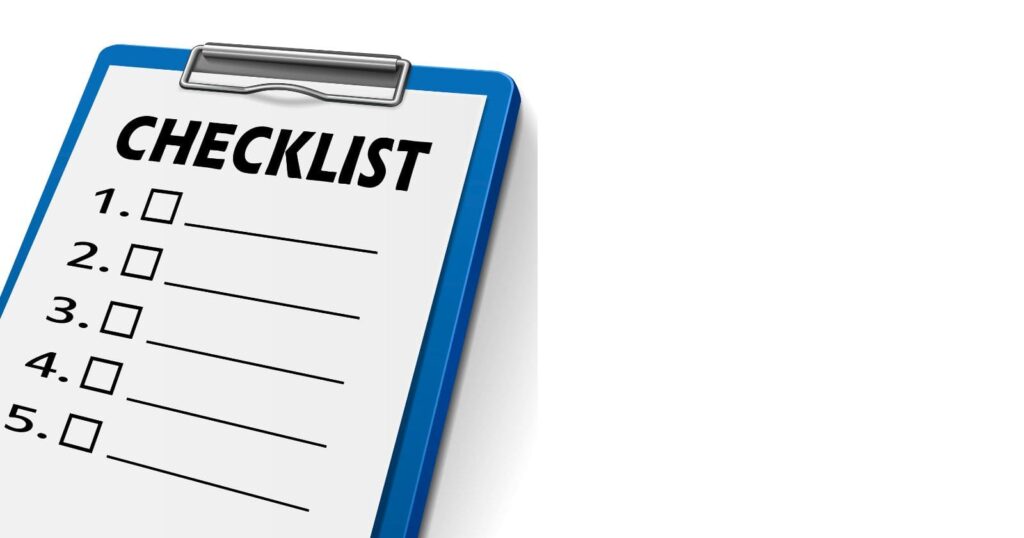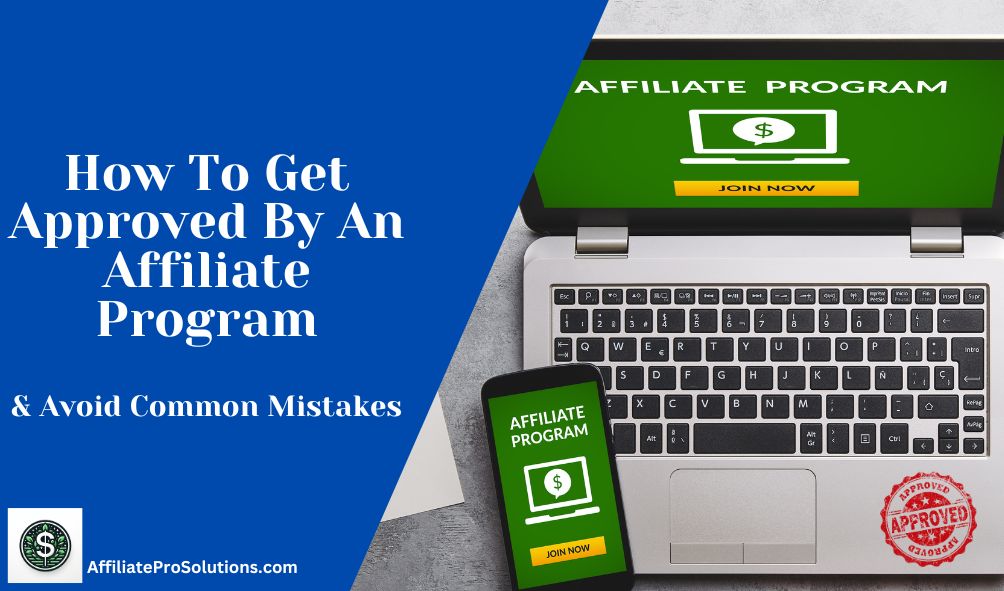Topic – Affiliate Marketing
Post Reading Time – 16 Minutes
A lot of people ignore this stuff until it bites them. Are you one of these people? Let me just tell you, it doesn’t matter if you’re promoting products on a blog, YouTube, or even on social media, failing to disclose properly can lead to a loss of trust, legal trouble, and even getting banned from affiliate programs.
If you’re serious about making money online, you need to get this right. Understanding affiliate disclosure requirements will help to keep your business on the right track and build trust with your audience.
Let’s go through what you need to know so you can do it the right way.
Why Affiliate Disclosure Requirements Matter
If you’re earning money or getting a perk for promoting something, your audience deserves to know. Hiding it, even if it’s by accident, can cost you trust and lead you to bigger problems down the road.
Affiliate disclosure requirements exist to keep things honest and to protect both you and your audience. When people know where your recommendations come from, it helps you to stay credible and keeps everything above board. Failing to disclose properly can lead to trouble, and that’s not a risk worth taking.
See Your Full Disclosure Compliance Checklist here!
What You’ll Learn From This Post
- You Must Be Transparent With Your Audience – Affiliate disclosures aren’t optional, they’re a legal requirement and you need to follow them. You’ll learn how to clearly communicate when you’re earning commissions so you can build trust and avoid misleading your audience.
- Disclosures and Disclaimers Are Not The Same Thing – These two terms get mixed up all the time. I’ll explain the difference so you know when to use each one correctly and avoid any legal headaches.
- Both Affiliates And Brands Are Held Accountable – If you think compliance is only the affiliate’s job, think again. Brands also have a responsibility to make sure their partners follow the rules. I’ll cover what both sides need to do to stay compliant.
- Your Disclosure Needs To Be Clear And Easy To Find – Tucking it away in the fine print won’t cut it. I’ll show you where and how to place disclosures so they’re obvious and meet the rules.
- Following The Rules Protects You From Trouble – Ignoring disclosure requirements can hurt your reputation, cost you money, and even get you banned from affiliate programs. In this post, I’ll walk you through what you need to do to stay on the safe side.

Start Your Training
- Build Your Website & Earn Revenue
- Support, Tools & Training Included
- Complete with Business HUB
- Artificial Intelligence Writers
- My Personal Support
- No Risk Free Starter Account
It’s hard to scroll through any of the social media channels these days without seeing an influencer sharing their favorite products. Believe it or not, 80% of people admit they’ve bought something just because an influencer recommended it.
That’s a huge influence, don’t you think?
Word of mouth has always been powerful, and that’s exactly why influencer marketing works so well.
When your favorite influencer talks about a product, the chances are you pay attention. People trust others they admire or relate to, and that’s what makes this so effective.
Have you ever bought something because your favorite influencer (or even a friend) recommended it?
If the answer is yes, think about why you trusted their suggestion.
Understanding this influence is important for anyone in affiliate marketing. Building trust with your audience is what makes the difference between a one time sale and long term success.
Affiliate marketing works when people trust you. If they see you as reliable, they’ll listen to your recommendations and keep coming back. That’s what leads to success.
Understanding Affiliate Disclosure Requirements & Protecting Consumer Trust
The Federal Trade Commission (FTC) helps to keep the marketplace fair by making sure advertising is honest.
It’s there to stop misleading promotions that could trick consumers into buying something under false pretenses. This is especially important in influencer marketing, where paid promotions can sometimes feel like personal recommendations.
If an influencer gets paid or receives a free product, people should know. Hiding it, even if it’s unintentional, can damage trust.
Without these rules in place, brands and influencers could pass off paid endorsements as genuine opinions, leaving consumers misled. The FTC’s regulations help prevent that, making sure people get the full picture before they buy anything.
Being upfront about any compensation is a requirement. Both brands and influencers have a responsibility to disclose any payments, free products, or perks they receive. Skipping this step can lead to trouble, and it’s not worth the risk.
For a full breakdown of the FTC’s rules on endorsements and disclosures, check out FTC Endorsement Guides – What People Are Asking.

Why Affiliate Disclosure Requirements Are Essential for Transparency
Like I said, affiliate disclosures are there for a reason. If you’re earning money from a recommendation, your audience needs to know about it.
The Federal Trade Commission (FTC) requires these disclosures in order to prevent misleading advertising. If someone promotes a product without being upfront about any compensation, it can leave people questioning their recommendations.
Trust matters. If people find out later that a review was paid for and it wasn’t disclosed, they’re going to feel misled. Once that trust is gone, it’s not easy to get back.
Some people think disclosure will make their recommendations less effective, but it’s actually the opposite that is true.
Being upfront shows honesty, and that’s what keeps people listening and coming back.
Following these rules keeps your credibility intact and helps you build out stronger connections with the people who support you.
Ignoring them can do the opposite.
A disclosure doesn’t need to be complicated. If you’re looking for an example, you can check out mine here – Affiliate Pro Solutions Website Disclosure.

Affiliate Disclosures vs. Disclaimers – What’s the Difference?
It’s important for you to know that disclosures and disclaimers are not the same thing.
They might look very similar, but they serve completely different purposes. Knowing the difference now can save you confusion later on.
What Is an Affiliate Disclosure?
A disclosure is your way of being upfront when you’re getting compensated for promoting a product or a service. It doesn’t matter if it’s money, a free gift, or some other perk. The point is, your audience needs to know about it.
It’s as simple as saying, “I got something back in return for this.”
What Is a Disclaimer?
A disclaimer is there to protect you from liability and prevent any misunderstandings.
These statements set boundaries on how your content should be interpreted. They clarify that certain information isn’t professional advice or a guarantee of results.
You’ve probably seen phrases like “results not typical” or “for informational purposes only.” That’s a disclaimer.
Additional Affiliate Marketing Info & Resources
Why It Matters
If you create content, you need to use both correctly.
- Disclosures keep you transparent and compliant when promoting products.
- Disclaimers protect you from legal issues and false expectations.
I know this stuff can seem like a hassle, but getting it right helps you stay out of trouble and keeps your audience’s trust.
Who Needs to Follow Affiliate Disclosure Requirements?
When it comes to affiliate marketing, who needs to disclose? It’s very simple. If you’re getting compensated in any way for promoting something, you have to let your audience know.
It doesn’t matter if your audience is big or small, or if you’re earning a few dollars, a thousand, or just getting a freebie. If you’re getting paid, receiving gifts, or even getting discounts, you need to be upfront about it.
Let’s say you’re blogging about your favorite electronics such as cellphones or laptops, and a brand sends you money to mention their new laptop. That needs a disclosure.
Same goes for that free watch you just posted about on Facebook or Instagram.
Some people think disclosures are only for big influencers, but that’s not true at all. It applies to everyone, whether you’re just starting out or have millions of followers.
Now, have a quick think about when you’re reading reviews online. What if you found out later on that the reviewer was paid or got a free product, but never said so?
Wouldn’t that feel a bit dodgy?
You see, being transparent keeps that trust intact, and trust is what makes people stick around.
If you’re doing affiliate marketing, keep your audience informed about any perks, payments, or gifts you’ve received.
At the end of the day, it’s about being fair, honest, and upfront. Every clear disclosure helps build stronger connections with your audience.

When and How to Make Effective Affiliate Disclosures
If you don’t get this right, it can come back to bite you later on.
You need to be very clear about your relationship with a brand and what kind of compensation you’ve received. It doesn’t matter if it’s a free product, a payment, or a commission, your audience needs to be made aware.
If you’re getting something in return and you’re promoting that product, that’s when you disclose it.
This applies to everything. Blog posts, videos, social media, podcasts are all part of it. So, no sneaky fine print, and no hiding it at the bottom of a page. Your readers need to see it easily.
Have you ever read a review, trusted what was said, and then later found out the person was paid for it?
That kind of thing makes people feel like they were tricked, and once you lose people’s trust, it’s not easy to get it back again.
The timing of your disclosure matters. It should come early, ideally before you even start talking about the product. That way, your audience knows from the very start that you’re getting compensated.
When you’re upfront, people respect you more. They can decide for themselves how much weight to give to your recommendations.
At the end of the day, it’s about being fair and honest. A clear disclosure keeps the trust intact, and that’s what really matters in affiliate marketing.
Effective Disclosures & How to Get It Right
As I’ve said, getting your disclosure right matters. It keeps your audience’s trust and makes sure you’re following FTC rules.
Disclosures need to be clear and easy to see. The last thing your audience should have to do is search for them.
The best way to do this is to place them right next to your promotional content or affiliate link.
If you’re posting a YouTube video, put the disclosure at the top of the description or mention it in the video itself. That way, people see it right away.
Pro Tip
Always keep it simple. Say something like “I received this product for free” or “I earn a commission if you buy through my link.” That’s all your audience needs to know. Don’t bombard your readers with over complicated wording or legal jargon.
Your disclosure should always be easy to find. Don’t try and be sneaky and hide it in fine print. Also, don’t go hiding it at the bottom of the page.
On social media, put it in the same post as your promotion. If people have to dig around to find it, you’re doing it wrong.
Just make sure your audience knows right away that you’re earning from a recommendation.
If they know, you’re doing it right.
At the end of the day, being upfront is about respect. People appreciate honesty, and when they trust you, they’ll keep coming back and may even recommend you to others.

Brand Responsibility in Meeting Affiliate Disclosure Requirements
Brands have a responsibility to make sure that their affiliates follow the disclosure rules. If they don’t, it can lead to legal trouble, lost trust, and a badly damaged reputation.
Affiliates need to have clear guidance on what, when, and how to disclose. Brands should provide simple instructions or templates so there’s no confusion.
It’s also important to stay in touch instead of assuming affiliates are handling their disclosures correctly. Webinars, training materials, or even regular check ins can help make sure everything is being done the right way.
If brands ignore compliance, they’re putting themselves at risk too. It’s not just the affiliate who could face penalties.
Consumers notice when a company isn’t being upfront. If they think a brand is trying to be sneaky, trust disappears fast.
Making transparency a priority protects a brand’s reputation and keeps them out of trouble. It also builds long term trust with customers, which is what matters the most.

Avoiding Legal Issues by Following Affiliate Disclosure Requirements
Ignoring disclosure rules is asking for trouble. Fines, lost trust, and a damaged reputation can all come from one simple mistake.
FTC disclosure rules exist for a reason, and ignoring them can cost both the affiliates and brands a lot of money.
Losing credibility with your audience is even worse. Once people stop trusting you, getting that trust back isn’t easy.
One undisclosed promotion could mean fines, a damaged reputation, or even getting banned from affiliate programs.
So, how do you avoid getting into this mess?
Make clear disclosures a habit. Stay updated on FTC guidelines because the rules change, and what worked last year might not be enough today.
If you’re not sure about something, ask a legal expert or check with someone who knows the rules inside out. It’s better to get it right than to deal with the problems later.
Following the rules keeps you out of legal trouble, but more importantly, it helps you keep the trust of the people who support you.
Honesty is what makes successful affiliate marketing work in the long run.
When brands and affiliates take disclosure seriously, it keeps the industry fair and gives consumers more confidence in what they’re buying.
Being upfront not only protects you but also makes you more credible, which is what actually keeps people coming back.
Your Affiliate Disclosure Compliance Checklist

| Checklist Item | Description |
|---|---|
| Clearly State Compensation Received | Mention whether you received payment, a free product, or any other form of compensation when promoting a product or service. |
| Use Simple and Direct Language | Disclose in plain, straightforward terms (e.g., “I earn a commission” or “I received this product for free”). |
| Ensure Prominent Placement | Disclosures should be easily visible, placed near the promotional content, affiliate links, or within the content itself. No hidden or buried text. |
| Apply Disclosures Across All Platforms | Maintain transparency consistently on all mediums, including blogs, social media posts, videos, and podcasts. |
| Regularly Review the FTC Guidelines | Stay updated on changing laws and best practices related to affiliate disclosures to avoid legal complications. |
| Brands Need to Educate Their Affiliates | Offer clear guidelines, templates, and resources to help affiliates remain compliant. |
| Keep Communication Open | Encourage regular communication between brands and affiliates to stay updated on compliance requirements. |
| Seek Professional Advice if Needed | Consult with legal or compliance experts to clarify any questions about disclosure practices. |

Frequently Asked Questions – FAQs
What is an affiliate disclosure, and why do I need one?
An affiliate disclosure is a statement that lets your audience know when you’re earning money from promoting a product or service.
It’s required for transparency, helps maintain trust, and keeps you in line with FTC regulations. This way, consumers can make informed decisions based on honest information.
Where should I place my affiliate disclosures?
Disclosures should be easy to see and placed close to the content they relate to, such as near affiliate links, within social media posts, or at the start of blog posts and videos.
Avoid hiding them in footnotes or behind links. They should be immediately visible so there’s no confusion.
Do small or new influencers need to disclose their affiliate relationships?
Yes! It doesn’t matter if you have 10 followers or 10,000. If you’re earning something from a recommendation, you need to disclose it.
The FTC requires all affiliates, no matter their audience size, to be transparent about any compensation they receive.
What kind of wording should I use in my disclosures?
Keep it simple and direct. Be upfront with something simple like, ‘I may earn a small commission if you decide to buy through my link’ or ‘This product was sent to me for free.’
The goal is to make it clear to your audience without overcomplicating things with legal jargon!
What happens if I don’t disclose my affiliate relationships?
Not disclosing can lead to fines, legal trouble, and a damaged reputation.
Once trust is lost, it’s hard to get it back again. Being upfront not only keeps you compliant but also helps you build long term credibility with your audience.
The Role of Affiliate Disclosure Requirements in Your Success
I know this isn’t the most exciting topic in the world, so thanks for sticking with me until the end. It’s important, and I appreciate you taking the time to go through it with me.
Being transparent and building trust is what makes affiliate marketing work. When you follow disclosure rules, you protect yourself and keep your audience’s trust intact.
My Personal Thoughts On Affiliate Disclosures
I’ve been in affiliate marketing for a long time, and I’ll openly admit that I didn’t always take disclosures seriously. There was a time when I didn’t even use them on some of my websites and blogs. Not because I was trying to mislead anyone, but because I didn’t really think it mattered that much. Looking back, I don’t really know why!
As time went on though, I realized how wrong that was. If people feel like you’re hiding something, they’ll question everything you say. And once that doubt creeps in, it’s hard (if not impossible) to get rid of it.
That’s why I make sure I’m upfront in all my content nowadays. Not just because it’s the right thing to do, but because trust isn’t something you can fake. You either have it, or you don’t. And if you lose it, good luck trying to get it back again.
At the end of the day, people don’t just follow you because of what you promote. They follow you because they believe you’re being real with them. If they know you’re straight with them about the small things, they’ll trust you when it comes to the big things too.
I hope this post has given you some clarity on Affiliate Disclosures.
Thank you, and please leave your thoughts and comments below.
Chris
Wealthy Affiliate
This is where my journey into the online world began, and it’s still the only community I trust for genuine, high quality guidance on building a business and earning money online.

The Wealthy Affiliate platform offers everything you need – training, hosting, tools, resources, and live assistance – all in one place.
If you’re ready to start your online business, this is the perfect place to begin.
I highly recommend Wealthy Affiliate for its unmatched support and resources.
About Chris Towers – Follow Me

My name is Chris Towers, and I’m here to help you make sense of affiliate marketing and build an online income. Through years of experience, I’ve learned what works, and I want to share those lessons here to help you succeed.
Related
- What Are The 5 Cs Of Content Creation? Make Yours Stand Out
- Effective Ways To Promote Affiliate Products That Work
- How To Get Approved By An Affiliate Program And Avoid Mistakes
- Affiliate Disclosure Requirements – What You Must Know
- How Much Money Do You Need To Start Affiliate Marketing?
- Why Do People Fail At Affiliate Marketing? Avoid the Traps
Just to be open with you – My site includes links that are part of affiliate programs. If you click on these links and buy something, I might get a small commission. There’s no additional cost for you whatsoever. It’s a simple way to support the content I create for you. I hope you are OK with this & thank you for your understanding.







I’m pleased I read your article. I was rather ignorant about the difference between disclaimers and disclosures but you have described them really well here.
The Affiliate Disclosure Compliance Checklist is also really useful and I have bookmarked it for my own peace of mind,
Thank you for giving us this information on what is an important issue.
Hi Jackie
Thank you for taking the time to comment!
I’m glad I was able to clarify the difference between disclaimers and disclosures for you. It’s one of those topics that can be a bit confusing at first, but it’s important to get it right.
Thanks also for bookmarking the checklist, it means a lot.
Chris
Great article Chris!
Transparency is indeed required to be successful in affiliate marketing.
I like how you went into the importance of disclosures, it’s easy to overlook these details, especially for new marketers. Your point about trust being hard to rebuild if lost is something people need to think about.
I’ve seen firsthand how being upfront about affiliate ties strengthens relationships with an audience.
I also like the way you gave this information in simple language as it can often be a boring subject. You did good here.
Do you think people react differently to disclosures depending on whether they’re on social media or a blog?
Thanks, this really helpful for me!
Hi Naresh
I’m glad the article didn’t come across as too boring from you, simplifying topics like this is something I really try to focus on, especially when they’re not the most exciting subjects to begin with!
To answer your question, I think disclosures on social media vs a blog can feel different for audiences. On social media, people are used to seeing quick, casual content, so the way a disclosure is presented (like in a short caption) can feel more natural.
On a blog, there’s more room to explain, and it’s also easier to write your disclosures into the content. Either way, the important thing is making them clear and honest without interrupting the flow too much.
I hope this clears it up for you.
Thanks
Chris